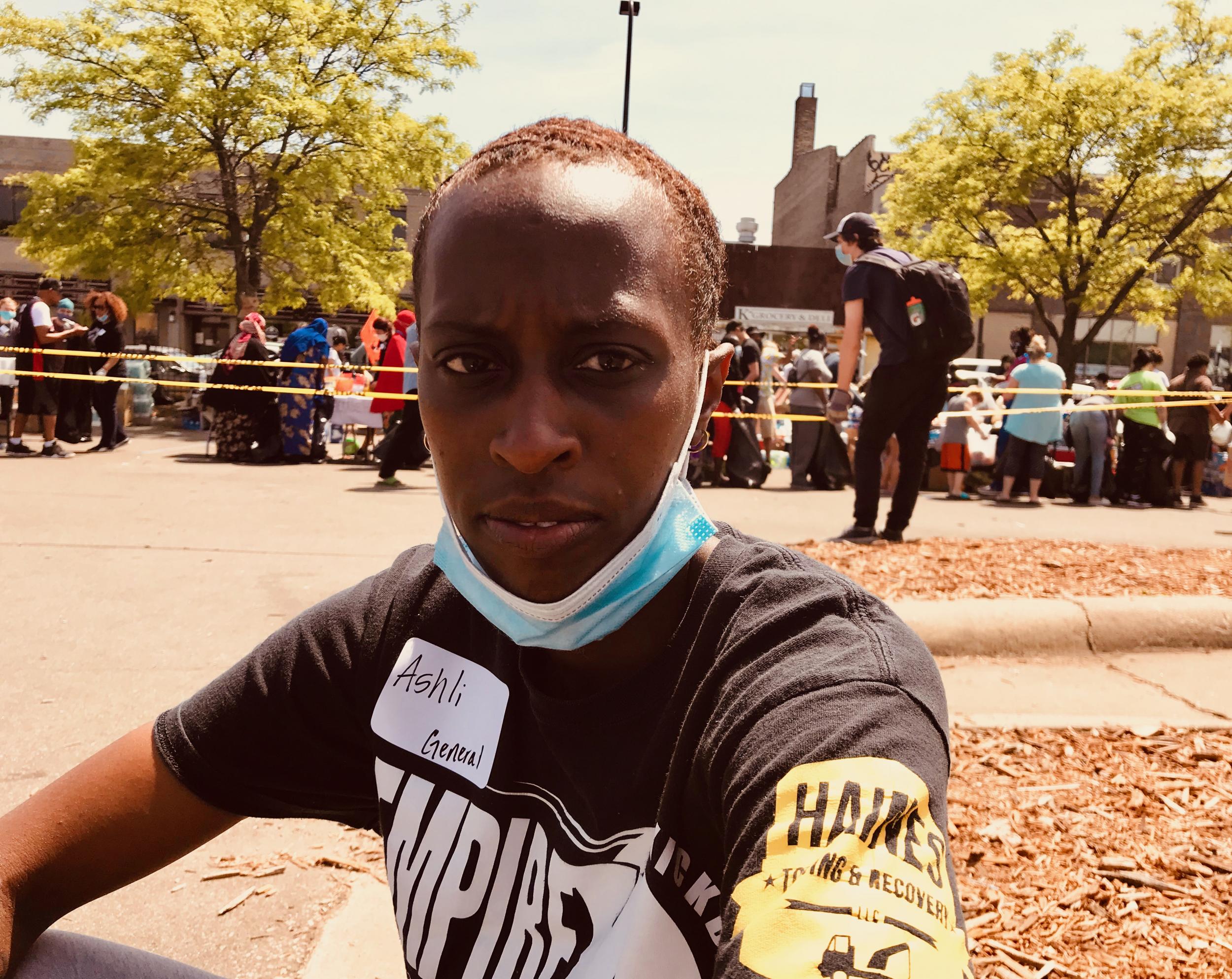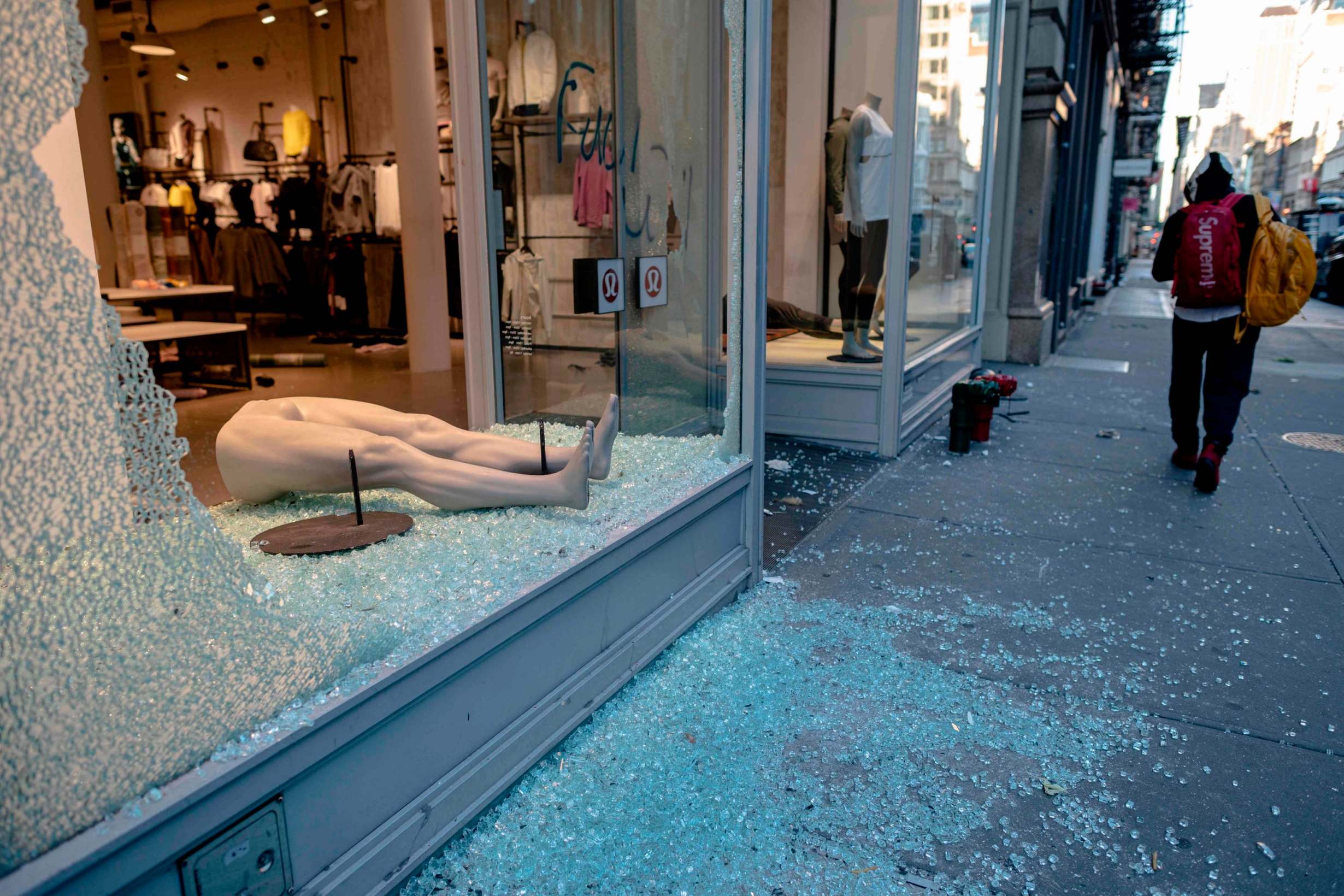‘The community is looking out for the community’: Minneapolis volunteers led by local comedian organise as George Floyd protests close groceries
‘I said, Hey we’re going to need food. I live in this community. I’m going to need food’
Your support helps us to tell the story
From reproductive rights to climate change to Big Tech, The Independent is on the ground when the story is developing. Whether it's investigating the financials of Elon Musk's pro-Trump PAC or producing our latest documentary, 'The A Word', which shines a light on the American women fighting for reproductive rights, we know how important it is to parse out the facts from the messaging.
At such a critical moment in US history, we need reporters on the ground. Your donation allows us to keep sending journalists to speak to both sides of the story.
The Independent is trusted by Americans across the entire political spectrum. And unlike many other quality news outlets, we choose not to lock Americans out of our reporting and analysis with paywalls. We believe quality journalism should be available to everyone, paid for by those who can afford it.
Your support makes all the difference.On the first day Ashli Henderson put out a message for donations, she had one table and just a few paltry items.
The following day, word had spread far and wide by social media. She needed a dozen tables, and had enough food and other essential items to distribute to hundreds of people.
“This is all in love and support,” said Ms Henderson, a comedian and activist who grew up in north Minneapolis. “Like I said, hashtag ‘we can’t breathe’ – we’re here for the people that can’t breathe. The people that have been dealing with this for time and time to come. And we’re still fighting this fight.”
The efforts of Ms Henderson and others like her are part of a remarkable self-help story that has received only modest attention in the week following George Floyd’s death in police custody, which sparked mass protests and riots in Minneapolis and in cities across the nation.
While the media has been dominated by images of burning buildings and pictures of people being teargassed by police, communities directly affected by the destruction set to work helping themselves. They organised clean-ups, collections, and helped neighbours board up their buildings.

They also stepped in to fill the gap created by the closure, or destruction, of supermarkets and pharmacies, many of them owned by people of colour. And it is happening in countless places across the twin cities of Minneapolis and St Paul.
In south Minneapolis, a donation-drive at Sanford Middle School, close to where some of the first damage occurred, involved lines of cars backed up for some distance, as people dropped off supplies.
In St Paul, a day of donation and distribution was organised by a nursing student.
Ms Henderson, 29, said she was inspired by what she saw in south Minneapolis, and wanted to do the same to help her community in the north of the city. By the weekend, a large car park located on Broadway Ave was filled with tables carrying food, nappies, toiletries and medical supplies.
The line of people patiently waiting to pick up the stuff stretched down the street.
“We’ve organised this under Ashli’s leadership,” said Keiona Cook, a school teacher who was helping restock tables. “It’s a way to get stuff to the community.”
Asked what the long lines of smiling faces signified, she said: “It tells me that the community can take care of the community.”
The food and medical supplies distribution has been going on every day from noon to 4pm. All of the items have been donated by individuals, or companies, or else purchased using money people have donated.
Ed Broom, 56, part of the line of people, was filling up a black bin liner with necessities. He said the closure of stores had made it difficult for people who did not have access to a car. In recent days, as the protests have continued, authorities took the decision to close down most public transport.
Michael Slaughter, 30, with his his wife and the pair were hoping to fill up on food for them and their two children. “We have some food at home, but we’re running out,” he said. “We cannot go to the store.”
Renee Cannady, 64, was also volunteering. She was a seamstress by profession but was now retired. She said people were already hurting because of the coronavirus pandemic.
“Now they’re hurting more because they can’t go to where they shop,” she said. Asked how long she believed it would take before stores reopened and things returned to how they were, she said: “I don’t know. It’s going to be some time.”
Medical supplies were being distributed by volunteers from the University of Minnesota Physicians Broadway Family Medicine Clinic.
Dr Kelly Justesen, a family doctor, said she had not known Ms Henderson before last weekend, when they met in the parking lot, one organising food, the other organising medial supplies. The agreed to cooperate.
“We were concerned that community members may not have access to items, so we wanted to do something for them,” she said.
Often amid the discussions that has taken place about damage to businesses caused by the looting and protests, the fact that many were owned by black or minority residents has been overlooked.

While some protesters justified their actions by saying stores such as Target were large corporations, the vast majority of those damaged were not.
Along West Broadway Ave, several boarded-up stores, carried the words “Black owned”. Many of the neighbourhoods were already termed “food deserts” because of the scarcity of grocery stores with fresh food.
“When the riots hit, our grocery store was one of those places that were hit,” said Ms Henderson. “And I said, ‘Hey we’re going to need food. I live in this community, I’m going to need food. I am mobile, but a lot of our people in this community are not mobile. So we set up shop right where they rioted, and in a central location for the community to walk from their homes to come and get food and household goods.”
She added: “We started off with one table, three cases of water, and a carton of formula. Now look at this.”

Join our commenting forum
Join thought-provoking conversations, follow other Independent readers and see their replies
Comments